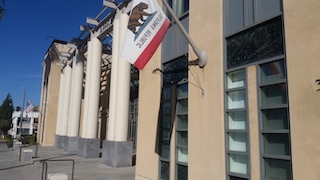The evidence at trial was that Basler and his two codefendants reacted aggressively to Armstrong and his friends over the actions of an intoxicated girlfriend. They challenged Armstrong to a fight and at some point a witness overheard Basler tell his two codefendants they should pretend to apologize to Armstrong and then “jump” him. The codefendants said, “Yeah,” and nodded in agreement. The fight then took place and, amid the chaos of six people punching at each other, Basler and his friends inflicted more injuries.
In 2012, a Riverside County Superior Court convicted Basler and his codefendants of first degree murder (Penal Code § 187(a)), premeditated attempted murder (Penal Code §§ 187(a), 664), and assault as a lesser offense of the charged assault by means of force likely to cause great bodily injury.
Basler admitted that he suffered a prior serious felony conviction (Penal Code § 667(a)) that also constituted a prior strike (Penal Code §§ 667(c), (e)(1), 1170.12(c)(1)). The judge sentenced him to prison for 64 years to life, plus a determinate term of five years..
Basler appealed and the Fourth Appellate District reversed his first degree murder conviction and remanded the case. The Fourth Appellate District court found that the trial court erred under
People v. Chiu (2014) 59 Cal. 4th 155, by instructing the jury on the natural and probable consequences doctrine of aiding and abetting first degree murder and that the error prejudiced Basler and his codefendants.
 4th Appellate District Div 2 Riverside
4th Appellate District Div 2 Riverside
The court explained, “[A] rational jury on this record could find that Basler only intended to assault Armstrong, not kill him. Although Basler was armed and witnesses saw Basler attacking Armstrong, no one saw Basler wielding a knife at that time. There was no direct evidence that Basler personally stabbed Armstrong. . . . If Basler was not the perpetrator of Armstrong’s murder, he could only have aided and abetted [his codefendant]. . . . A rational jury could therefore have rejected the theories of [direct] perpetration and direct aiding and abetting and based its verdict solely on the legally improper theory of natural and probable consequences.”
On remand, Basler accepted a plea to second degree murder and his aggregate sentence 44 years to life, plus a determinate term of five years.
In 2019, Basler, representing himself, filed a petition for resentencing under Penal Code § 1170.95 (Senate Bill 1437) (now Penal Code § 1172.6).
In February 2020, the trial court issued an order to show cause and, after additional briefing, held an evidentiary hearing. Basler was not present. His attorney submitted on the papers. The court denied the petition, finding in its June 2021 order that Basler was convicted by a jury of premeditated first degree murder. It found that he was not convicted of felony murder or murder under the natural and probable consequences doctrine. The judge further found that Basler still could be convicted of murder even after the changes made to sections 188 and 189 effective January 1, 2019.
Basler appealed the ruling on several grounds, but this article will just address his arguments that the judge violated his statutory and constitutional rights by conducting the evidentiary hearing in his absence without his waiver and that the judge reversibly erred by failing to address the merits of his section 1170.95 petition as to his attempted murder conviction in light of Senate Bill 775 (effective January 1, 2022).
The People conceded that Basler was correct in arguing that the judge erred by not considering his attempted murder conviction in light of Senate Bill 775 and the Fourth Appellate District remanded the case to the trial court to consider the attempted murder conviction.
The Fourth Appellate District also agreed that Basler did have a right to be present at his § 1170.95 evidentiary hearing, so the appellate court further ordered a new evidentiary hearing on the murder conviction, either with Basler present or with a knowing, intelligent and voluntary waiver from him of his presence.
We bring this to the reader’s attention because we suspect that there have been more than several 1170.95 evidentiary hearings without defendant present, which is legally erroneous.
The citation for the Fourth Appellate District Court ruling discussed above is People v. Matthew Alexis Basler (4th App. Dist., 2022) 80 Cal. App. 5th 46, 294 Cal. Rptr. 3d 910.
For more information about resentencing under Senate Bill 1437, please click on the following articles:
 4th Appellate District Div 2 Riverside
4th Appellate District Div 2 Riverside